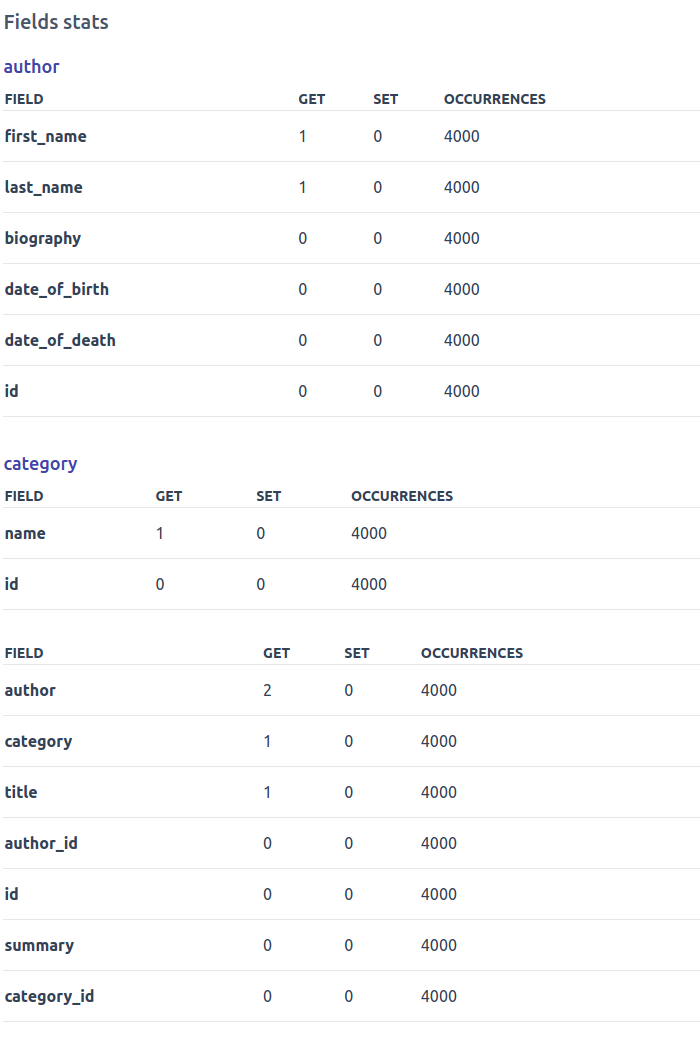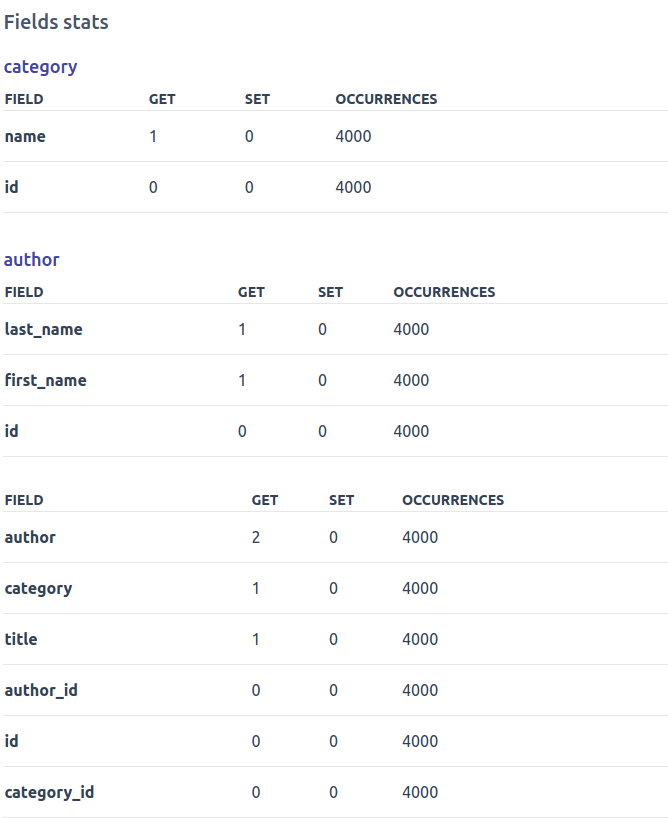only/defer usage
The Field Stats section of a query page shows how much time each field has been accessed for each instance in a queryset.
It shows a main table corresponding to the main model of a queryset and in cases where we have other instances related to the main model, it shows a separate table for each related model.
This is what the field stats look like for our books query:

We can see that only the author, category and title fields were accessed for the Book instances. Similarly, only the first_name and last_name were accessed for the Author instances and name for Category instances.
The field stats table shows all fields that were loaded from the database. Therefore, you'll generally see the primary key field (id in our example) in the stats even if we you don't use it in your own code because Django will automatically load the primary key.
only/defer
In these situations, we can use the only method of QuerySets to only fetch the values we're interested in.
Let's update our view as follows:
def books_list(request):
books = Book.objects.select_related("category", "author").only(
"title",
"category__name",
"author__first_name",
"author__last_name",
)
return render(request, "books.html", {"books": books})
And run our profilers:
Time in ms (10 calls) - Min: 193.54, Max: 238.62, Avg: 219.09
Memory - size in KiB (10 calls) - Min: 5485.70, Max: 5855.15, Avg: 5698.45
Memory - peak in KiB (10 calls) - Min: 8448.93, Max: 8819.18, Avg: 8658.94
We can notice a small speed gain of around 30ms in average. However, we're now just using around 5.7MB; compared the previous 35MB we were using, it's a huge improvement - mostly explained by the fact that we're no longer loading the large summary and biography fields.
If we go to the query view, the fields stats will now look like this:

You can notice that the author_id and category_id are still being loaded even if we don't use it in our code. However, they're required for the select_related to work. This behaviour is detailed in the defer section of QuerySets in the Django docs (linked in note above).
Summary
dj-tracker shows all fields usage in a queryset. We can use that information to apply the only or defer optimisations when we notice that some fields aren't being used.
I highly recommend reading the various notes on the docs of only and defer and take them into consideration when you apply these optimisations.
Back to our query, you may (or not) have seen in the Hints section of the query page that dj-tracker suggests using .values or .values_list. Check out the next page to learn more about it.